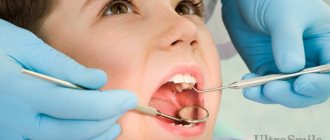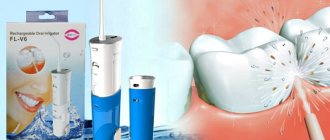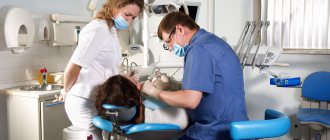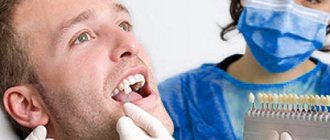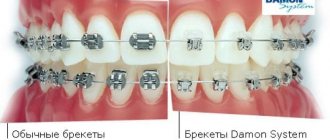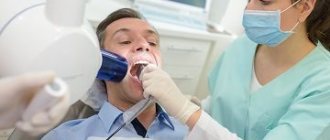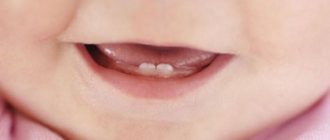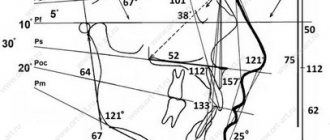According to surveys, of all the medical professions, dentists scare our compatriots the most. Squealing drills and creepy-looking instruments are long gone, but people are still reluctant to go to the dentist.
On the other hand, it is in this branch of medicine that doctors earn the highest earnings. Therefore, if you are not embarrassed by this attitude towards the profession, and you want to become a dental technician, you should choose a medical university or specialized college to enroll.
We have prepared a list of dental colleges in the capital and other regions of the Russian Federation.
Want to see rankings of colleges and schools for other specialties? Applicants subscribed to our telegram channel are the first to receive lists of technical schools and universities in the most popular areas.
How to become a dentist: studying in college
Go to medical school University for the most popular specialty among applicants, “dentistry,” is not easy. Those who decide to start studying at college to become a dental technician after 11th grade have a better chance and after graduating can apply for the 2nd year of university.
Please note: you cannot go to dental college after the ninth grade; only graduates of the eleventh grade receive professional education in this profile.
Specialties of medical dental colleges
Dental technicians in colleges are trained in 2 areas:
- preventive dentistry;
- orthopedic dentistry.
The second educational program is more popular; it is presented in most medical colleges.
How to enter medical colleges to become a dental technician
To become a student at a dental college after 11th grade, you need to submit documents to the admissions committee (application, copy of passport, certificate of secondary education) and pass exams:
- Russian language;
- physics;
- chemistry.
In addition, the admissions committee conducts psychological testing for applicants to understand whether a person can not only study in college as a dental technician, but also work in his specialty.
Going to a good dental technician is not scary at all
How many years does it take to study to become a dentist?
The duration of study is 5 years to obtain theoretical knowledge; after the second or third year, students will have their first internship and a year of full-fledged internship in their future profession.
After receiving basic knowledge, applicants each go in their own direction.
Is it difficult to study? - applicants ask. As elsewhere, it all depends on interest, abilities and desires.
Dental colleges in Moscow
Studying in college to become a dental technician is possible both in a specialized college and in a general medical institution.
- Dental College No. 1.
- Medical College No. 5.
- Moscow Regional Medical College No. 1.
- Medical College of the Russian University of Transport (MIIT).
- College of Innovative Technologies and Service "Galaktika".
At the same time, budget places are available only in the first three educational institutions. The cost of paid training starts from 88,000 rubles per year.
By the way! And we offer our readers a 10% discount on any type of work
As we said above, you cannot enter a dental college in Moscow after 9th grade. Training to become a dental technician is possible only on the basis of complete secondary education.
Characteristics of the profession - what it does, functions and responsibilities
Let's see what specializations dentists have:
- The therapist is the doctor to whom you turn first. The general practitioner analyzes the general condition of the teeth. Finds problem areas, treats caries, removes nerves, puts fillings and restorations, and prepares teeth for prosthetics.
- The surgeon performs operations in the oral cavity: removes teeth, restores the jaw after injuries, prepares the oral cavity for implantation, prosthetics, orthodontic and orthopedic treatment. Deals with problems related to inflammatory processes, cysts and tumors.
- An orthodontist corrects malocclusion – a situation where the jaws do not close straight, but deviate to the right or left; corrects the curvature of the teeth - increased crowding, in which the teeth have “not enough space” and they run into each other or vice versa. The result of his work carries an important aesthetic point for the patient.
- Orthopedist – comes to the rescue when teeth are missing. Restores them with the help of dentures, removable or permanent, and fully reproduces the important chewing function. If it was possible to save a small part of the tooth, then it uses restoration technology using a crown. This doctor works in tandem with a dental technician - a specialist in the manufacture of dentures and prosthetic elements for a specific case.
- Hygienist is a relatively new field. Monitors the cleanliness of the oral cavity, carries out preventive and hygienic procedures to maintain oral health. Removes plaque, tartar, polishes enamel. Provides consultations regarding the prevention of dental diseases.
- Implantologist – specializes in restoring lost teeth using implants. Innovative technology allows you to install tooth analogues that are no different from real ones. Conducts a full examination, preparation in several stages and the implantation itself. Observes the patient throughout the entire period of rehabilitation after the intervention.
- A pediatric dentist is a doctor who deals with children's dental problems. Removes and treats baby teeth so that the molars develop healthy; puts fillings; fights oral diseases that children are prone to at an early age. A pediatric dentist should not be a doctor, but a kind wizard who will convince the child to treat his teeth and be able to perform all the manipulations without tears.
Dental colleges in Russia
There is only one dental college in St. Petersburg: you can get an education in this area at Medical College No. 3. There is a large supply of budget places and a high price for contract education: 150,000 rubles. There are no more dental colleges in St. Petersburg, but this specialty is taught in many St. Petersburg hospitals. universities
You can study to become a dental technician in college after 11th grade in many other cities of the Russian Federation.
- Medical College of Volgograd State Medical University.
- Rostov Basic Medical College.
- Medical and Pharmaceutical College of the Far Eastern State Medical University.
- Tyumen Medical College.
- Medical College of Saratov State Medical University named after V. I. Razumovsky
- Novosibirsk Medical College.
- Orenburg Regional Medical College.
- Kaluga Basic Medical College.
- Kirov Medical College.
- Vladimir Basic Medical College.
Studying in college to become a dentist can be difficult: you need to learn a lot of general and special disciplines and memorize a lot of information. You can make the learning process easier by enlisting the support of a student assistance service. Its experts will always give good advice, help you understand the material or prepare any academic work.
What a dentist should know and be able to do - personal qualities and skills
First of all, have a great desire to help people. There is no person who has never had a dental problem.
The doctor must find an approach to everyone, convey the need for the procedures performed and set them up for a positive outcome. Calm and support.
The profession is associated with the ability to work with a large amount of information at the initial stage; in the future, it is important to be able to successfully combine knowledge with practice. This is the basis for making a diagnosis - a decisive role in dental treatment.
A lot of daily work awaits the future specialist. The profession implies constant improvement and training, because modern dentistry does not stand still, new types of treatment appear every year.
What personal qualities should a dental technician have?
Our beautiful, luxurious smiles are “born” not in the dentist’s chair, but in an inconspicuous laboratory, where dental technicians pore over many small details, like jewelers. Therefore, these specialists, first of all, must have developed fine motor skills, perseverance and patience. In addition, dental technicians are helped to perform their work efficiently by such personal qualities as:
- accuracy;
- composure;
- responsibility;
- sense of color;
- artistic taste;
- attentiveness;
- observation;
- good eye;
- good RAM;
- ability to empathize;
- spatial thinking;
- perseverance;
- neatness.
Let us note that a dental technician can successfully perform his job only if he has extensive knowledge in areas such as chemistry, physics, mathematics, anatomy, materials science (that is, knowledge of the variety and properties of materials used today in dental prosthetics) , metalworking, milling and engraving. He will also need the skills of a foundry worker, welder, electroplating chemist and computer scientist (modeling prostheses in 3-D graphics).
Where can a dentist work?
Commercial dentistry is now leading the way in providing jobs. The state is pursuing a policy that supports medical workers, providing decent wages, high pensions and the opportunity to purchase subsidized housing.
This profession will always be popular and relevant, because every person has been a patient of a dentist for almost his entire life.
Is it worth studying to become a dentist - the pros and cons of the profession
The main thing is to have a great desire to treat patients’ teeth. Working with people is psychologically difficult, and the profession also involves enormous physical labor: working with your hands, in one position, under tension.
But it's worth it - nothing compares to the happy and grateful faces of patients.
Going to study based on the mere demand for a profession and fairly high wages is not entirely correct. It’s like an artist’s calling to become a musician, because they get paid more, even though he is only talented in drawing. It is better to find a profession you like and achieve success there.
Being a doctor is not only a calling; doctors take the Hippocratic oath, which says “do no harm.” This should be the basis when choosing the profession of a doctor, and a dentist - in the first place!
The dentist profession is quite in demand and is considered very prestigious. Dentists specialize in all problems related to the maxillofacial area; they are competent in modern diagnosis and treatment of teeth. The dentist often acts as a competent consultant in matters of disease prevention and proper oral care in general.
Who is a dentist: what do you need to know about the profession?
A dentist is a doctor who treats the teeth, jaw, soft tissues, or other organs of the oral cavity. The dental profession is a fairly broad concept, so specialists with a narrower profile are distinguished:
- The dentist treats caries, puts fillings, and restores teeth;
- dental surgeon – this focus involves diagnosing dental diseases using x-rays;
- orthopedist-dentist – a prosthetist who restores teeth and prevents the further development of various oral diseases;
- pediatric dentist.
In addition to dentists, dental technicians, orthodontists and medical assistants often work in clinics and dental offices. The duties of such an assistant include sterilizing dental instruments, conducting physical therapy procedures, preparing the office, and assisting the doctor in maintaining documentation.
Tasks and Responsibilities
Dentists have a wide field of activity, since the very concept of this specialty is quite capacious and is divided into several areas. Depending on them, the tasks and responsibilities of the doctor will vary. In a broader sense, the dentist's primary goal is to treat the patient's oral health.
Dentistry is a high-tech branch of medicine, so the doctor must be a master of various special equipment and instruments.
Work and salary
The dentist profession is prestigious, so the earnings of these specialists are quite high. Dentists can work in public clinics or in private offices.
The peculiarity of this profession is that there are several options for career growth. In the first case, the doctor can remain in the same position, constantly improving his qualifications and gaining experience. In addition, a dentist always has the opportunity to move up the administrative ladder and reach the position of chief physician. Also, a specialist can choose a scientific career and defend a doctoral dissertation, if desired, at the same time working for himself and improving his financial condition.
The average salary of a beginning specialist is about 30-40,000 rubles, while doctors with experience can receive from 100,000 rubles.
